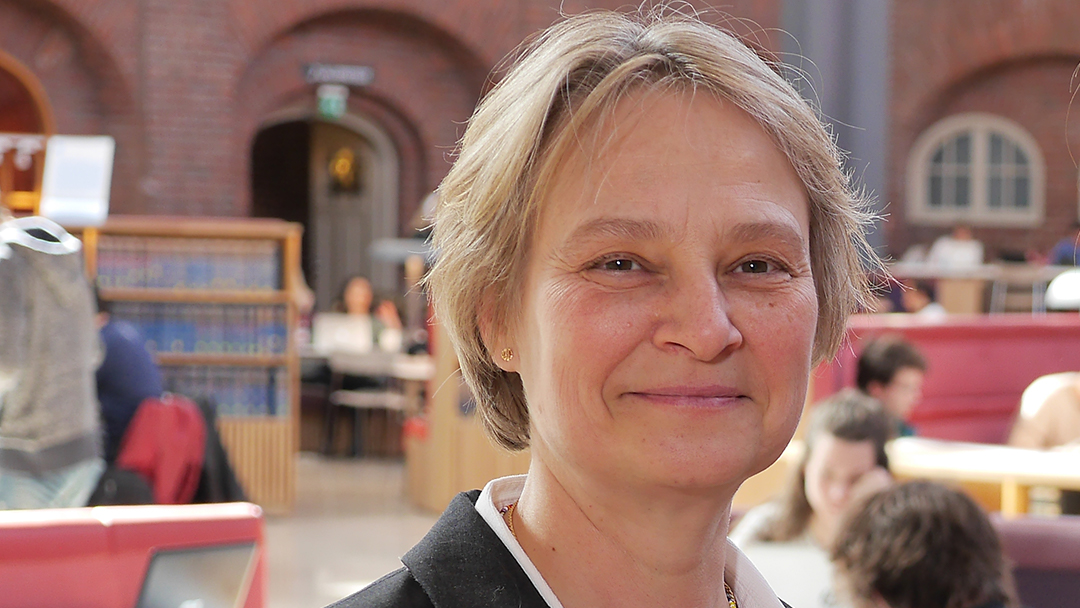Linda Rose receives newly established teacher award

Senior lecturer Linda Rose at CBH receives the KTH Global Development Hub's newly established teacher award in global sustainable development 2020, for her work in developing and implementing the course Ergonomics in product development.
Linda Rose gave the course for the first time during the autumn semester 2019 simultaneously both at KTH and at GDH's partner university Botho in Botswana. Students from the two universities collaborated via video link and other digital aids, on societal challenges in both Sweden and Botswana.
How does it feel to receive this award?
"Very good! There was a lot of us who worked on developing the course: its content, the technology needed to be able to give the course at two universities in two continents in real-time and so that it suited both KTH's and Botho University's structures and administrative systems. Now, I was the one who got the award, but I would like to highlight the support from colleagues at the Ergonomics Department, managers at the CBH School, our IT department with Mikael Kullström at the helm, Anders Rosén and the others who work with GDH and last but not least, Ivy Mathew and her colleagues at Botho University. Without their cooperation, we would not have been able to do this," says Linda Rose.
The idea of the course is that students from KTH and Botho University work together in mixed groups to help solve a Swedish and a Botswana societal challenge, where both challenges are similar. Through a project, which is supported by other learning activities in the course, they gain experience-based knowledge of how to work to contribute to achieving the UN's goals for sustainable development. The focus is on the importance of ergonomics in the development of products and systems.
“We did the course design, among other things, with the aim of equipping the future engineers with the key skills UNSECO describes as necessary to meet the global societal challenges we face - such as skills in collaboration and integrated problem solving.
Collaboration with Botswana
The idea for the course came when Linda Rose and her colleagues were to develop a course on ergonomics in product development for the master's program "Technology, Work and Health". Linda had been to a workshop on challenge-driven education and wanted to develop the course as a challenge-driven course, where students would gain experience of working with a real, global societal challenge. She saw a KTH grant for such course development, applied and received money for this.
“At the workshop that GDH arranged in 2017, there were colleagues from five of KTH's partner universities in Africa. I got a good connection with my colleagues from Botho University, and we started discussing and sketching on different types of collaborations. When I then took a KTH course on the development of challenge-driven courses, the opportunity opened up to go down to Botho University for a week during the course development. There we worked intensively with, among other things, workshops and got to know each other a little more. Trust is important for good cooperation.”
What were the challenges?
“There were several! For a while, I called the course "the challenge course" and not just because it was challenge-driven. The technology and the connection from Botswana was a clear and ever-present challenge. Another was the differences between the students at the two universities: cultural differences and norms, different perspectives and conditions. I was often outside my comfort zone, but working in the course was incredibly exciting, developing and fun.”
Now the work continues to further develop both the course and the collaboration with Botho University. Linda Rose and her colleagues at KTH are discussing how they can support others to develop similar courses and use the prize money in a good way.
“We also try to find opportunities for shorter exchanges so that both students and teachers involved in the course can work at the other university in a completely different context for a shorter time. In a larger perspective, we also plan research and development collaborations between KTH and Botho University.”
Text: Jon Lindhe
